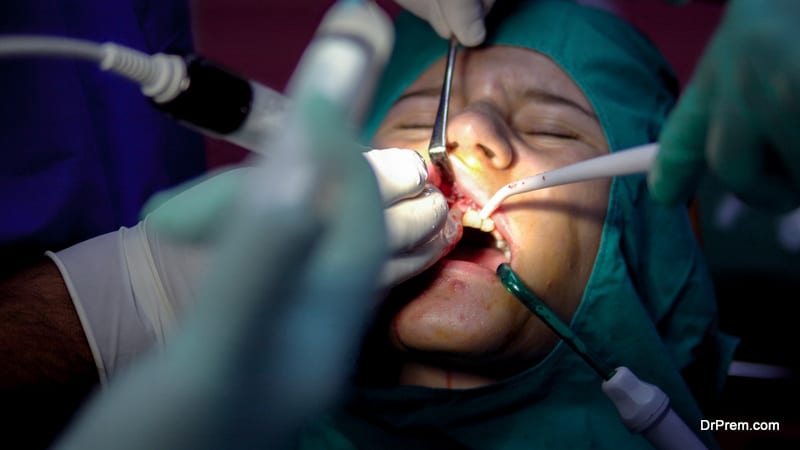If you need oral surgery, you should get ready so that you can have the treatment without any issues and recuperate quickly at home. The majority of the time, oral surgery is done by a St Albans dentist as an outpatient procedure and either general or local anesthesia is used. Oral procedures should be given the same treatment as any other surgery from the patient’s point of view. To prevent the spread of infection, you must follow post-operative guidelines and take many of the same procedures.
So here in this article, we will guide you how to avoid the complications after oral surgery. So lets’ get started!
1. Talk Specifically About Your Oral Surgery

It’s amazing how many people get reticent when speaking with an oral surgeon about dental surgery. They’ll pay close attention while you go over the procedure, anesthetic, and recuperation process with them, but they won’t ask any questions they find ridiculous or make them uncomfortable.
Ask about the safety of the treatment and whether there are any other options that would be equally effective if you have concerns about any aspect of it, such as the type of anesthetic being used. Knowing these things is a right, not a matter of courtesy.
Make sure your insurance will cover the surgery and that you won’t have a nasty surprise if a claim is denied. Inform your surgeon if you have a medical problem or are receiving surgery if you haven’t already. This includes any medications you might be taking, whether they are prescribed or not. The dentist will be better able to prevent issues and potential drug interactions the more information they have.
2. Organize Post-Operative Care and Transportation
Even though this advice may seem obvious, people frequently underestimate the effects of several oral procedures.
Generally speaking, it is ideal to have a friend or member of your family drive you to and from work. Don’t deceive yourself into believing you can operate if this isn’t doable. Your responses could even be hampered by a local anesthetic, which would make you less stable when driving.
Invite someone to spend the night with you if you live alone and are having a more difficult procedure. The same advice goes if you have children: make arrangements for child care or pre-make food so you won’t have to bother about cooking when you get home.
3. Know the Laws Regarding Eating, Drinking, and Smoking

You must adhere to the same preoperative instructions as anyone having surgery if your surgeon is using intravenous or general anesthesia.
Generally speaking, you should wait eight to twelve hours before your procedure to eat or drink anything, even water. You could be permitted to eat a light meal up to two hours before surgery if a local anesthetic is required, but make sure to brush and floss well beforehand.
Smoking is not permitted for at least 12 hours prior to and for at least 24 hours following oral surgery.
4. Dress for Surgery
For your surgery, dress appropriately. Choose loose-fitting, comfortable clothing with short sleeves. If you have an IV drip planned, this is extremely crucial.
Although the doctor and staff will try their best to keep your clothes from getting stained, you might want to wear something you don’t mind getting dirty just in case. Aside from that:
Avoid wearing jewelry because you could be asked to take it off before some operations.
Avoid wearing contact lenses while under general anesthesia because your eyes may be closed for a long time.
5. Make a post-operative diet plan

Prepare a menu of easy-to-chew soft foods in advance. Eat less hot and acidic food to prevent gum irritation. During your early recuperation, protein drinks like Boost, SlimFast, or Ensure are fantastic providers of nutrients. Other quick-cook dishes like oatmeal are also excellent.
Avoid drinking via a straw, even though it might seem sensible to do so, especially after having a tooth out.
Trying to suck through a straw might result in the painful disease known as a dry socket, which may require further treatment at the dentist.
Final Words
If you have to go under the knife or have ever had to deal with oral surgery, the complications that arise are definitely caused for worry. Having your mouth wired shut for weeks is never high on anyone’s list of relaxing vacations. After undergoing oral surgery for any reason, it’s always best to take precautions in order to reduce the chances of oral surgery complications as much as possible.
Article Submitted By Community Writer




